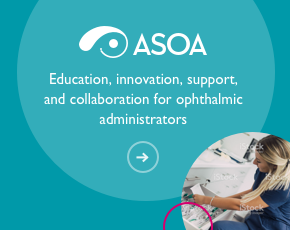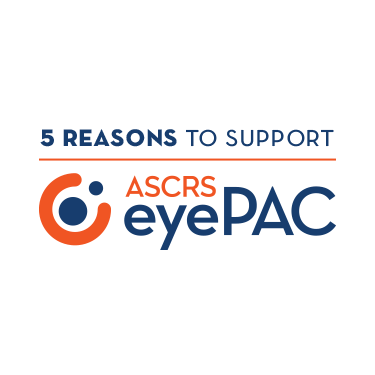ASCRS Joins AMA and Medical Community in Urging Congress to Address Liability Protections for Physicians
ASCRS joined the AMA and the medical community in a letter to congressional leadership urging them to include liability protections for physicians in the next COVID-19 relief package, and in particular, the protections that are included in the House bipartisan bill, H.R. 7059, the “Coronavirus Provider Protection Act,” introduced by Reps. Phil Roe, MD (R-TN) and Lou Correa (D-CA).
The liability protections we are requesting are intended to provide targeted and limited protections where health care services are provided or withheld in situations that may be beyond the control of physicians/facilities (e.g., following government guidelines, directives, lack of resources) due to COVID-19. The protections extend to those who provide care in good faith during the COVID-19 public health emergency (plus a reasonable time, such as 60 days, after the emergency declaration ends) and not in situations of gross negligence or willful misconduct.
HHS Announces Additional Distributions from Provider Relief Fund; Launches Enhanced Provider Portal and Updates FAQs
On June 9, the U.S. Department of Health and Human Services (HHS) announced it is moving forward with additional distributions from the Provider Relief Fund. HHS expects to distribute approximately $15 billion to eligible physicians and organizations that participate in state Medicaid and CHIP programs and have not received a payment from the Provider Relief Fund General Allocation.
HHS also launched an enhanced portal for Medicaid and CHIP providers to report their annual patient revenue and necessary information to receive a payment equal to at least 2% of reported gross revenues from patient care.
In addition, HHS has once again updated its FAQs regarding the CARES Act Provider Relief Fund.
It is also important to note that under the General Distribution Portal – it states:
- All providers who had automatically received funds prior to 5:00 pm, Friday, April 24th, must provide HHS with an accounting of their annual revenues by submitting tax forms or financial statements. These providers must also agree to the program Terms and Conditions if they wish to keep the funds.
- The submission of tax forms / financial statements to the portal will also serve as an application for additional funding. All providers submitting their financial information will be considered for additional funding from the General Distribution.
SBA Releases Updated PPP Guidance and a New PPP Loan Application Form
On June 11, 2020, the Small Business Administration (SBA) released interim final rule #17 adopting changes to Paycheck Protection Program (PPP) loan terms as a result of the new law, the Paycheck Protection Program Flexibility Act of 2020 enacted last week. In addition, the SBA released a new PPP loan application form that incorporates those changes.
As a reminder, the new law extends the forgiveness period for PPP loans from eight to 24 weeks, reduces payroll spending requirements from 75% of loan funds to 60% of loan funds, and extends the June 30th deadline for rehiring workers to the end of this year. Businesses now also have up to five years, instead of two years, to repay any money owed on a loan.
Next COVID-19 Relief Package Pushed to July
Senate Majority Leader Mitch McConnell (R-KY) indicated that the next stimulus legislation will not be considered before the July 3 two-week recess. While the dollar amount of the bill remains uncertain, McConnell has reportedly told the president that he does not want to exceed $1 trillion.
CMS Releases Guidance for Reopening Facilities
On June 9, the Centers for Medicare and Medicaid Services (CMS) released two new documents to provide guidance to facilities and patients as non-emergency, non-COVID-19 related in-person care resumes.
The facility guide outlines recommendations facilities should consider when resuming non-emergent care, and the patient guide includes recommendations regarding non-emergency treatment, such as considering telehealth.


